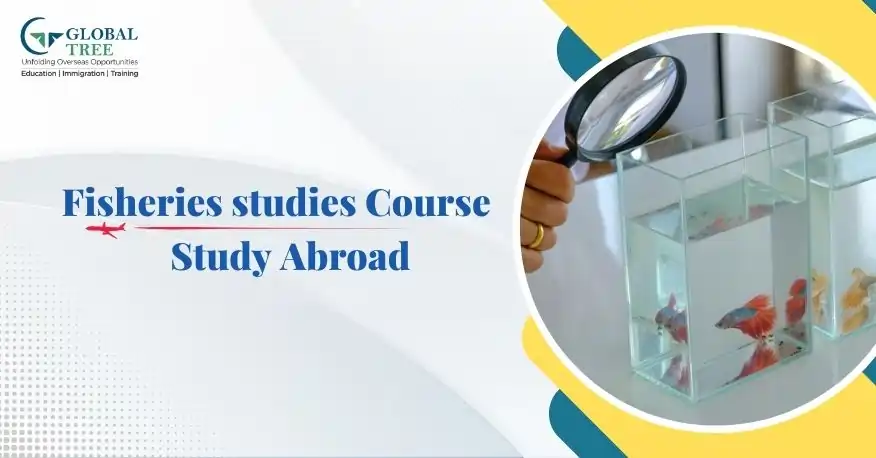Study Fisheries Studies Course Abroad

Introduction
Fisheries are geographical, social, and biological groups devoted to raising fish for human consumption. The science involves researching human-involved freshwater, marine, and aquatic systems. It investigates elements influencing stock sustainability and capture. You can pursue your quest for greatness in aquaculture by enrolling in any number of fisheries programs at the undergraduate and graduate levels. Choose the Best Fisheries Studies Course & Colleges to Study Abroad.
Who is eligible to study Fisheries Studies Course Abroad?
An understanding of biology is excellent because this profession necessitates deepening one's comprehension of how aquatic animals behave and interact with their surroundings. Additionally, it necessitates continuous connection with internal teams, field personnel, and supply chain networks, necessitating excellent interpersonal and teamwork abilities.
How much does it cost to study Fisheries Studies Course Abroad?
For students who want to pursue fishery sciences, an Associate Degree (2 years), a Bachelor's Degree (4 years), and a Master's Degree abroad (1-3 years) are the most popular options. In Australia, the average annual tuition is $23,804 for undergraduate programmes and $24,648 for graduate programmes. Some prominent universities that offer degree programmes in the field are James Cook's University, Flinders University, TAFE Western Australia University, University of Wollongong, and the University of Tasmania.
What is the Future Scope of Fisheries Studies Course Abroad?
For around 250 million people worldwide, fishing is their main source of income. The number of individuals employed in the field of fishery sciences is anticipated to rise by 2.3 per cent between 2016 and 2026.
Trending Career Options in Fisheries Studies Course Abroad
For those who want to pursue a career in fisheries studies, there are numerous job opportunities available.
Career as an Aquatic Biologist
They are wildlife biologists who analyze trends, stocks, and environmental changes while working with fish stocks in aquatic habitats.
Career as an Officer for Fisheries
A fisheries officer is in charge of managing the resources of a fishery facility. They frequently keep an eye on actions that could harm threatened or endangered species.
Career as a Fishery Supervisor
Fishery managers are in charge of managing every aspect of a fishery, including screening the areas used for cultivation, keeping track of fish development, maintaining equipment, preparing food, writing prescriptions, and working with other fishery managers.
(Read more: top countries to study MBA for Indian students)
Career as a Seafood Technician
A fishery's daily activities are supervised and supported by a fisheries technician. They are in responsible for maintaining the facility as a whole, as well as feeding and caring for the fish.
Career as a Fishery Watcher
The fisheries' monitors on land and at sea are called Fisheries Observers. They collect data from commercial fishing and processing vessels, as well as from receiving vessels and processing facilities on land.
Career as an Officer for Fisheries Development
They offer technical assistance by explaining new fishing techniques, and organizing and carrying out training sessions in fish handling techniques, vessel operations, at-sea safety, and fishing and fish-finding technologies, among other things. They provide captains and crews with instructions on safe fishing practices.









